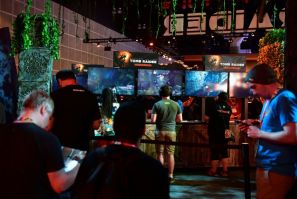The newly elected U.S. government has set an ambitious agenda aimed at boosting productivity and restoring long-term economic strength.
It did not take long for the "Crypto President's" appointed Crypto Czar, David Sacks, to arouse the interests of decentralized finance champions at home and abroad.
This new reality gives the Trump administration unexpected leverage in achieving a central foreign policy objective.
The US Southern Command's Joint Interagency Task Force South (JIATF-S), working in coordination with the Eastern Caribbean's Regional Security System, already plays a crucial role patrolling for drug-smugglers.
Trump became the first presidential winner to accept campaign contributions in cryptocurrencies.
Artificial intelligence needs a unifying principle that puts consumers first.
Ethereum (ETH) Vs. Polkadot (DOT) Vs. Cardano (ADA) Three, count 'em, three world-changing cryptocurrencies.
Congress and President Joe Biden can address the problem of PBMs -- Pharmacy Benefit Managers -- by passing two bipartisan reforms during the current "lame duck" legislative session.
In a paper advocating for improving nutrition in the first 1,000 days, the American Academy of Pediatrics identified 14 key nutrients for early brain development. Dairy foods provide seven of those 14 nutrients.
Crime has become a top issue for many lately. I had actually started writing an article three years ago on why we need to fund the police and revisited it after the issue impacted me personally. In a single month, I've had two home invasions. They were not opportunistic break-ins but organized by crime rings.
While Ibogaine treatment has mushroomed in Mexico and a few other nations, in the U.S. it remains on the Schedule I list of controlled substances.
US dependency on foreign producers for PPE—underscored by COVID—poses a threat not just to the average American consumer, but to American national security as a whole.
America is now home to nearly 400,000 manufacturing facilities, an increase of 11% since 2019.
The Medication Affordability and Patent Integrity Act would add additional mountains of redundant paperwork requirements for biotechs to navigate.
Djibouti is destined to become what Singapore is to Asia and Rotterdam is to Europe.
What if the answer to our growing trash problem is -- more trash?
As the 2024 election heats up, one thing should be clear to every candidate: the future of our economy depends on our approach to jobs and our workforce. Period.
Contrary to the conventional wisdom, Republican candidates don't need to shy away from healthcare debates -- especially not as they campaign against Kamala Harris.







































